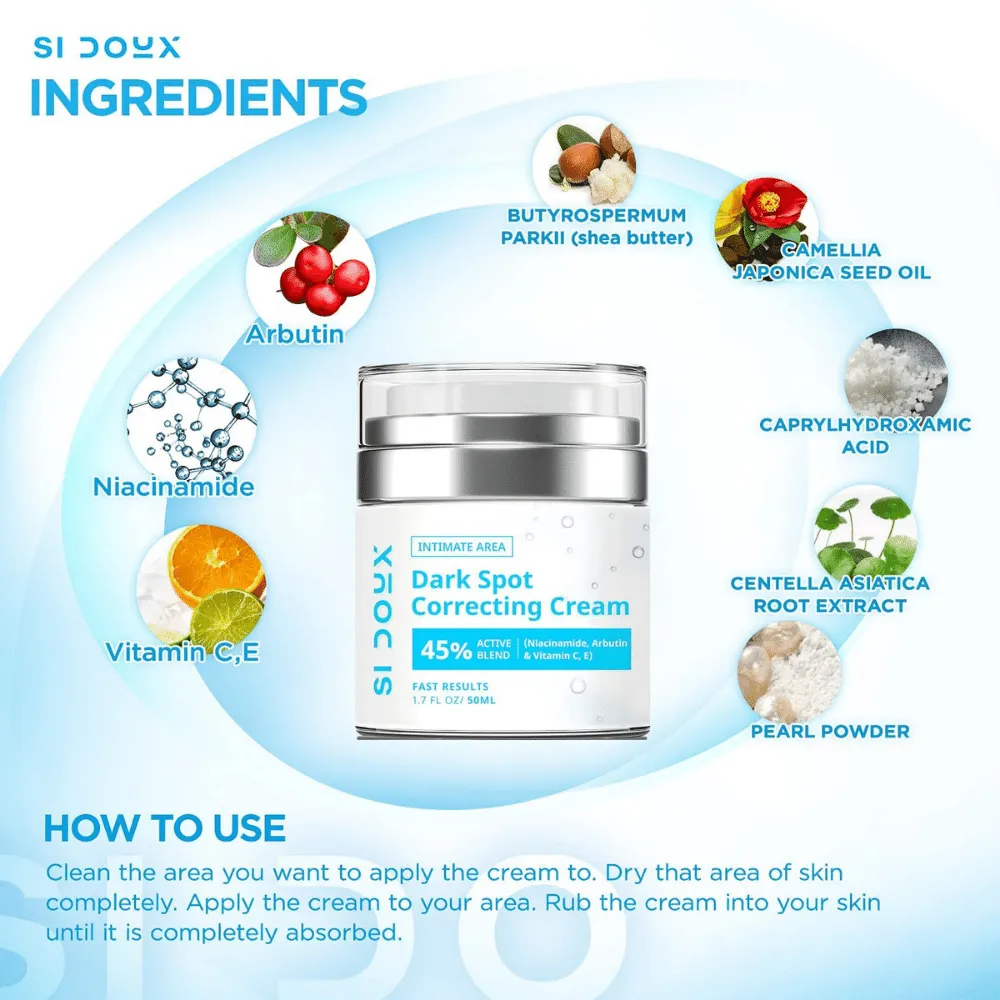Understanding Skin Whitening Creams
The quest for radiant, even-toned skin has led many to explore the world of skin whitening creams. These products aim to lighten the skin or reduce the appearance of dark spots, hyperpigmentation, and uneven skin tone. However, the effectiveness and safety of these creams can vary greatly, making it crucial to understand how they work and how to choose the best option for your specific needs. This guide will delve into the intricacies of skin whitening creams, providing you with the knowledge to make informed decisions.
What Are Skin Whitening Creams?
Skin whitening creams, also known as skin lightening creams, are cosmetic products designed to reduce the amount of melanin in the skin. Melanin is the pigment responsible for skin color, and an overproduction can lead to dark spots and uneven skin tone. These creams typically contain active ingredients that interfere with the production or transfer of melanin, resulting in a lighter complexion or a reduction in the visibility of dark spots. The market offers a wide range of products, each with different formulations and intended uses, from general skin brightening to targeted spot treatment.
How Skin Whitening Creams Work
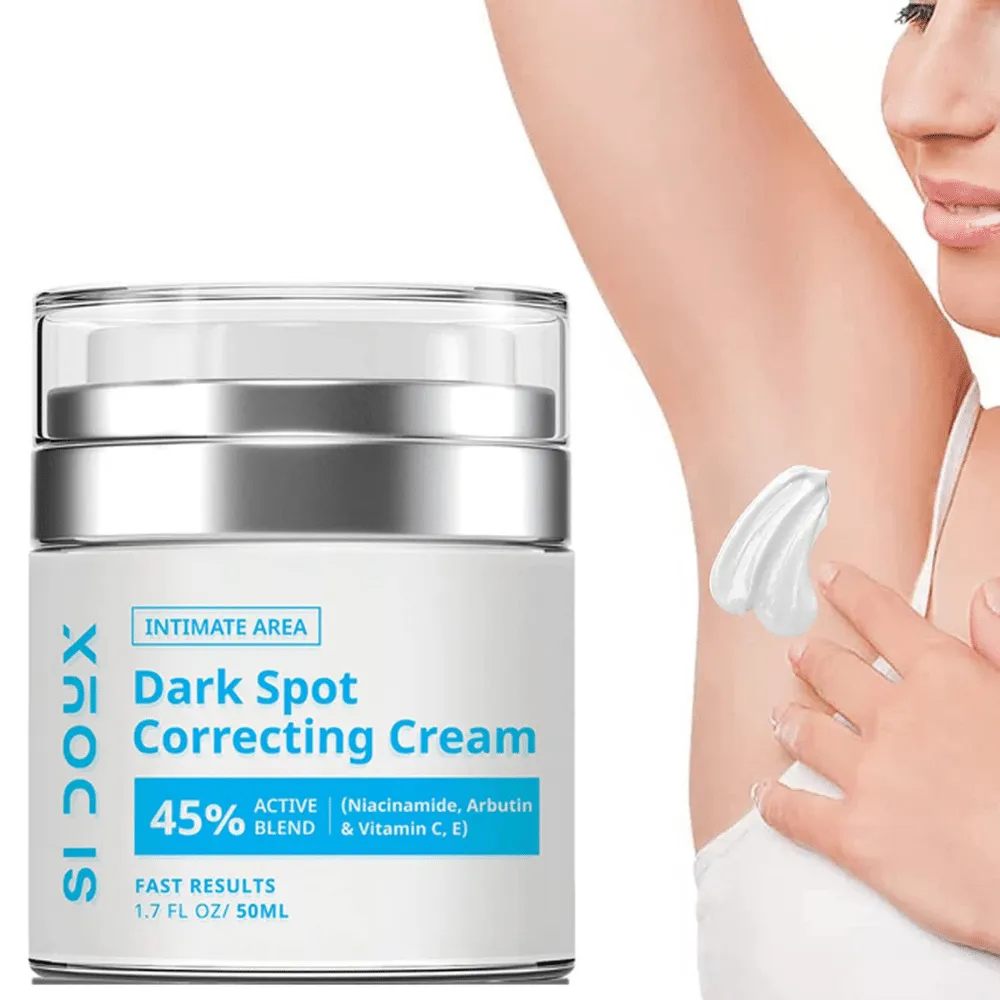
The mechanism behind skin whitening creams varies depending on the active ingredients used. Some ingredients, like hydroquinone, work by inhibiting tyrosinase, an enzyme essential for melanin production. Others, such as kojic acid and arbutin, also target tyrosinase, but with different methods of action. Certain creams use exfoliating agents, like AHAs (alpha-hydroxy acids) or BHAs (beta-hydroxy acids), to remove the outer layer of pigmented skin cells. Understanding these different mechanisms helps in selecting a product that aligns with your skin’s needs and the desired outcome. It is also crucial to note that the results are not instant; consistent use over several weeks or months is usually required.
Ingredients to Look For
When choosing a skin whitening cream, carefully examine the ingredient list. Look for products containing proven and safe ingredients. Vitamin C, a potent antioxidant, helps to brighten the skin and protect against free radical damage. Niacinamide, a form of vitamin B3, can reduce hyperpigmentation and improve skin tone. Arbutin and kojic acid are natural alternatives that also inhibit melanin production. Always opt for creams that are fragrance-free and hypoallergenic, especially if you have sensitive skin. Consult with a dermatologist to get recommendations based on your skin type and concerns.
Choosing the Right Skin Whitening Cream
Selecting the right skin whitening cream is a crucial step in achieving your desired results while minimizing potential risks. There is no one-size-fits-all solution. Several factors come into play, including your skin type, specific skin concerns, budget, and product research. Patience and consistency are key, and always prioritize your skin’s health and safety throughout the process. By considering these factors, you can make a well-informed choice and increase the likelihood of achieving your desired skin tone and radiance.
Assess Your Skin Type
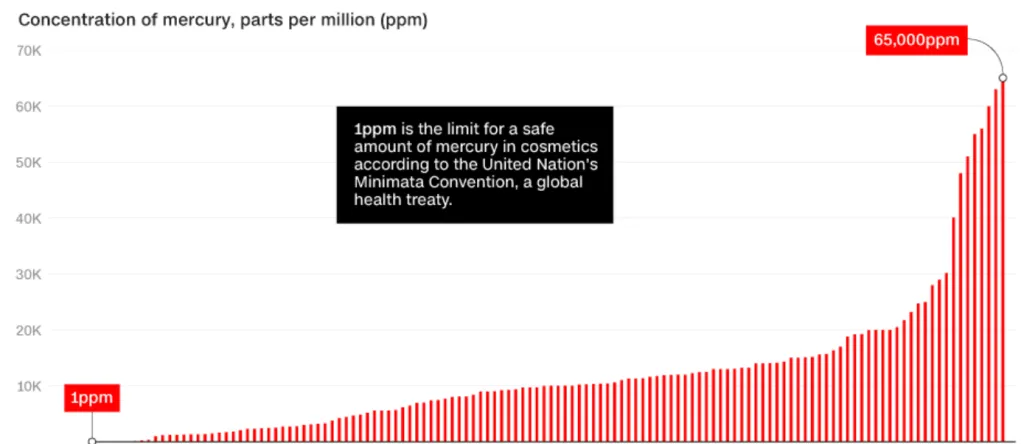
Determine your skin type before selecting a skin whitening cream. If you have oily skin, look for creams that are oil-free and non-comedogenic to avoid clogging pores. For dry skin, choose creams with moisturizing ingredients to prevent dryness and irritation. Sensitive skin requires extra caution, so opt for products that are fragrance-free, hypoallergenic, and specifically formulated for sensitive skin. Products labeled as ‘dermatologist-tested’ can be a good choice for sensitive skin. Consider doing a patch test on a small area of skin before applying the cream to a larger area to check for adverse reactions. (Image: skin-types-assessment.webp)
Identify Your Skin Concerns
Identify your specific skin concerns. Are you aiming to lighten your overall skin tone, or are you targeting dark spots, age spots, or acne scars? Different creams are formulated for specific purposes. Creams designed for overall lightening may contain ingredients that gently reduce melanin production over time. For targeted treatment of dark spots, look for creams with higher concentrations of active ingredients like hydroquinone (used under medical supervision) or kojic acid. Understanding your skin concerns helps you narrow down the options and select a product that directly addresses your needs. (Image: skin-concerns-identification.webp)
Consider Your Budget
Skin whitening creams vary in price, from affordable drugstore options to high-end, luxury brands. Set a budget to narrow your choices. Remember that the price is not always an indicator of effectiveness. Research and compare products within your budget. Consider the size of the product and how long it is expected to last. Look for products that offer good value for money, balancing the cost with the quality of ingredients and customer reviews. Some brands offer trial sizes or sample packs, allowing you to test the product before committing to a full-sized purchase.
Research Products
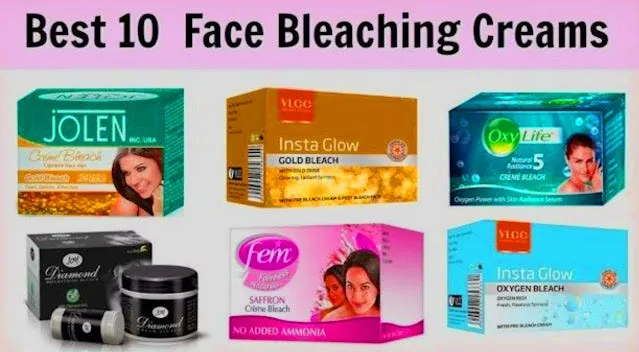
Thoroughly research the products you are considering. Read reviews from other users, paying attention to their skin type and results. Check the ingredient list and research each ingredient to understand its potential benefits and risks. Look for products that have been clinically tested and are backed by scientific evidence. Consult with a dermatologist or skincare professional for personalized recommendations. Be wary of products that make unrealistic promises or claim to provide instant results. Focus on products that prioritize safety and effectiveness.
Top Ingredients to Avoid
Some ingredients should be avoided or used with extreme caution. High concentrations of hydroquinone can cause ochronosis (skin darkening), so it should only be used under strict medical supervision. Mercury is a toxic ingredient and should be completely avoided. Strong steroids may lighten the skin but can also lead to serious side effects like thinning skin and increased susceptibility to infections. Always check the ingredient list carefully, and if in doubt, consult with a dermatologist. (Image: ingredients-to-avoid.webp)
Best Skin Whitening Cream Application
The way you apply skin whitening cream can significantly impact its effectiveness and safety. Proper techniques involve more than just applying the cream; it also includes preparing your skin, protecting it from the sun, and understanding the expected timeline for results. Following the manufacturer’s instructions is paramount. Remember that consistent, correct application is key to achieving the desired outcome. Regular use, combined with other protective measures, will contribute to the success of your skin whitening journey.
Proper Application Techniques
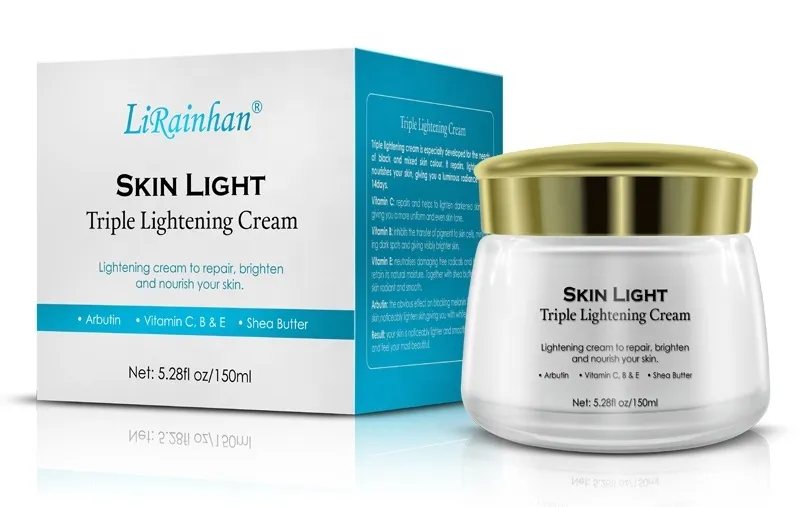
Always cleanse your skin thoroughly before applying the cream. Use a gentle cleanser to remove dirt, oil, and makeup. Pat your skin dry with a soft towel. Apply a small amount of the cream to the affected areas, using your fingertips. Gently massage the cream into your skin in a circular motion until it is fully absorbed. Avoid applying too much cream, as this will not necessarily increase the effectiveness and could lead to irritation. Follow the manufacturer’s instructions for frequency of use, typically once or twice a day. (Image: cream-application-technique.webp)
Importance of Sun Protection
Sun protection is essential when using skin whitening creams. Many of the active ingredients can make your skin more sensitive to the sun. Sun exposure can also reverse the effects of the cream and worsen hyperpigmentation. Apply a broad-spectrum sunscreen with an SPF of 30 or higher every morning, even on cloudy days. Reapply sunscreen every two hours, especially if you are spending time outdoors. Wear protective clothing, such as hats and long sleeves, to further shield your skin from the sun. (Image: sunscreen-protection.webp)
Expected Results and Timeline
Results from skin whitening creams are not instant. The timeline for seeing results varies depending on the product, the concentration of active ingredients, and your skin type. Most people start to see noticeable changes after several weeks or months of consistent use. Be patient and realistic about your expectations. If you do not see any improvement after several months, it may be time to consider a different product or consult with a dermatologist. The overall effect is often gradual, with subtle changes over time. If you experience adverse effects, stop using the product and consult a healthcare professional.
Potential Side Effects & Risks
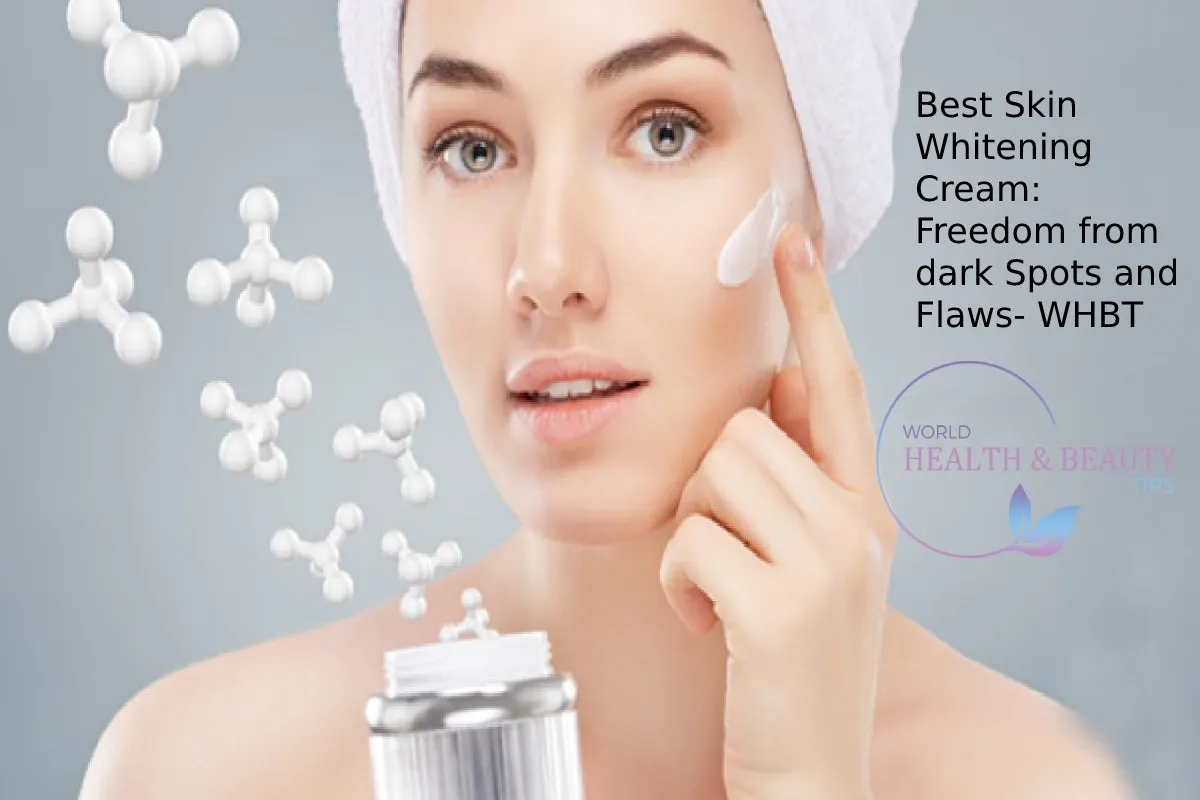
While skin whitening creams can be effective, it’s crucial to be aware of potential side effects and risks. Choosing a product that is safe for your skin type and understanding how to mitigate potential issues is paramount. Some side effects are minor and temporary, while others can be more serious. By understanding the possible risks, you can make informed decisions and take appropriate steps to safeguard your skin health.
Common Side Effects
The most common side effects of skin whitening creams include skin irritation, redness, and itching. Some creams may cause dryness, peeling, or flaking. In more severe cases, users may experience burning sensations or blistering. Long-term use of creams containing hydroquinone can lead to ochronosis, a condition where the skin turns a blue-black color. Allergic reactions are also possible. If you experience any adverse reactions, discontinue use immediately and consult a dermatologist. Carefully read the instructions and follow the recommended usage guidelines. (Image: side-effects.webp)
When to Seek Medical Advice
Consult a dermatologist if you experience persistent skin irritation, severe redness, swelling, or any signs of an allergic reaction. If you notice that your skin is getting darker instead of lighter, seek medical attention immediately. Always consult a healthcare professional if you have any concerns about using a skin whitening cream, especially if you have a pre-existing skin condition or are taking other medications. A dermatologist can provide personalized advice and recommend safe and effective products.
Alternative Skin Whitening Methods
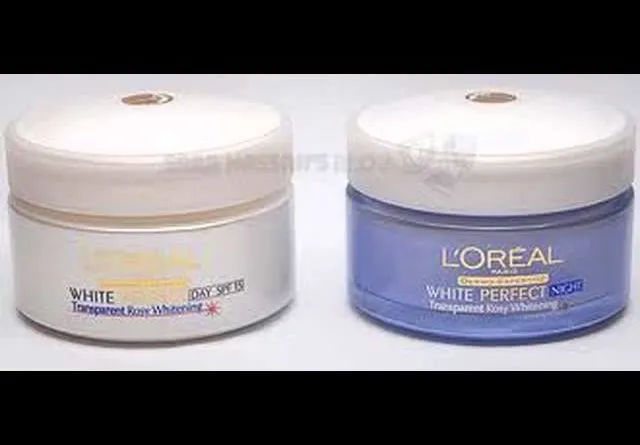
If you are hesitant about using skin whitening creams or want to explore alternative options, several other methods can help improve skin tone and reduce hyperpigmentation. These alternatives range from natural remedies to professional treatments. Exploring all possible solutions will help you determine the best approach for your individual needs and skin type. Consulting a dermatologist will give you personalized guidance on the best solutions.
Natural Remedies
Many natural remedies can help lighten skin and reduce dark spots. Ingredients like lemon juice, which contains citric acid, can act as a natural bleaching agent. However, use lemon juice with caution, as it can be irritating to the skin and increase sun sensitivity. Aloe vera can soothe the skin and help with hyperpigmentation. Turmeric, known for its anti-inflammatory properties, can also brighten the skin. Always perform a patch test before applying any natural remedy to a larger area of skin. These methods are often gentler but may take longer to produce results. (Image: natural-skin-remedies.webp)
Professional Treatments
If creams and natural remedies are not providing the desired results, consider professional treatments. Chemical peels use chemical solutions to exfoliate the skin and reduce hyperpigmentation. Laser treatments can target melanin and lighten dark spots. Microdermabrasion uses a special device to exfoliate the skin and improve its texture. Consult with a dermatologist to determine which professional treatment is best suited for your skin type and concerns. Professional treatments can provide more dramatic results, but they may also come with a higher cost and potential for side effects. (Image: professional-skin-treatments.webp)
